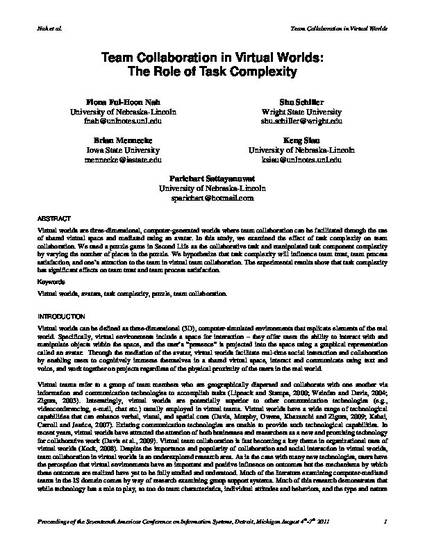
Presentation
Team Collaboration in Virtual Worlds: The Role of Task Complexity
AMCIS 2011 Proceedings - All Submissions
Track
Human Computer Interaction
Publication Date
8-5-2011
Abstract
Virtual worlds are three-dimensional, computer-generated worlds where team collaboration can be facilitated through the useof shared virtual space and mediated using an avatar. In this study, we examined the effect of task complexity on teamcollaboration. We used a puzzle game in Second Life as the collaborative task and manipulated task component complexityby varying the number of pieces in the puzzle. We hypothesize that task complexity will influence team trust, team processsatisfaction, and one’s attraction to the team in virtual team collaboration. The experimental results show that task complexityhas significant effects on team trust and team process satisfaction.
Citation Information
Fiona Fui-Hoon Nah, Shu Schiller, Brian E. Mennecke, Keng Siau, et al.. "Team Collaboration in Virtual Worlds: The Role of Task Complexity" (2011) Available at: http://works.bepress.com/brian_mennecke/26/
